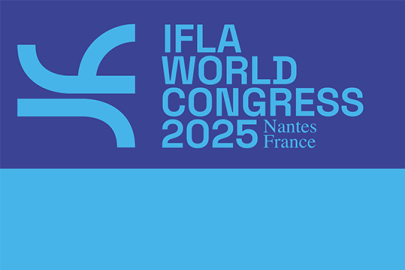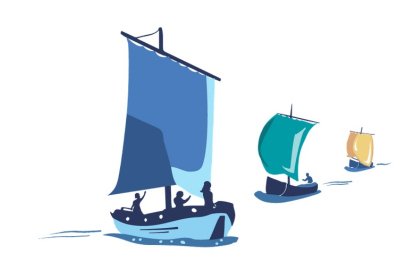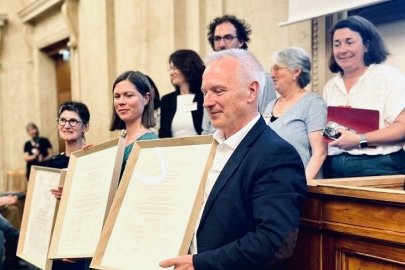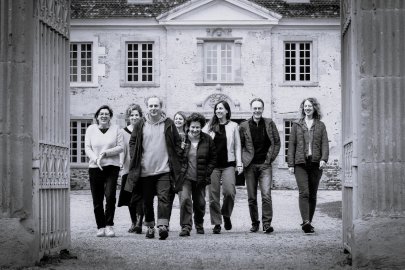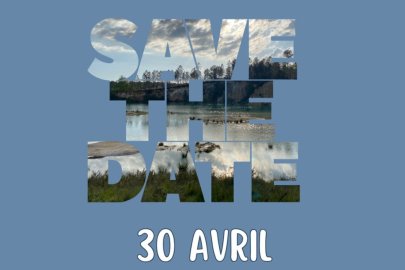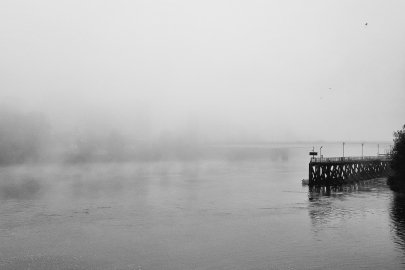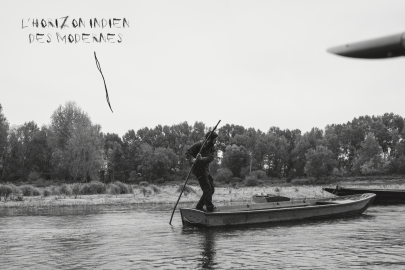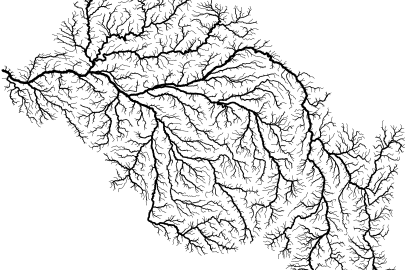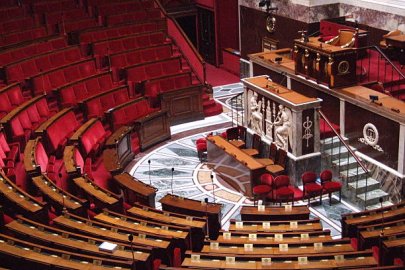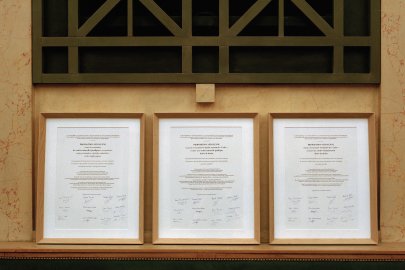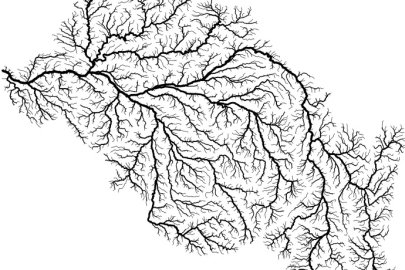The “Council of Witnesses” is made up of 12 faces, 12 lives, from a variety of professions, cultures and generations; they form the Council of Witnesses, whose task is to record and evaluate the stages of this changeover, this story of bifurcation... and the phases of emergence of this new political economy for life.
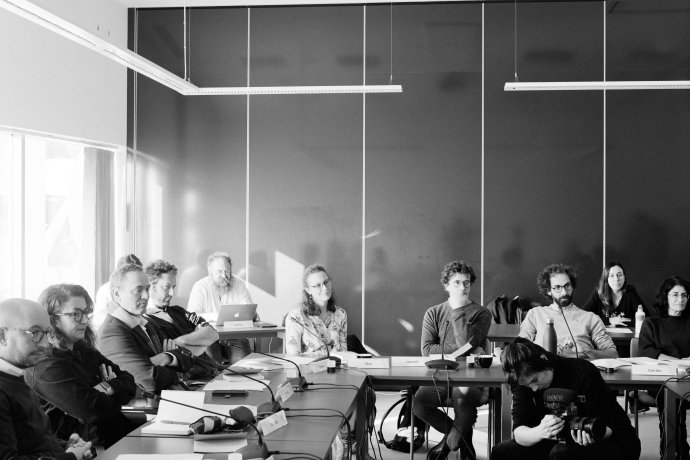
Anthony Descloziers, mayor of Sainte-Luce-sur-Loire, metropolitan councillor responsible for the Loire, heritage and archaeology at Nantes Métropole; paired with Rémy David (image), head of Nantes Métropole's Loire, heritage and landscape mission.
A local politician since 2010, Anthony Descloziers is, since 2020, mayor of Sainte-Luce-sur-Loire, a commune of 15,000 inhabitants located in the inner suburbs of Nantes Métropole. Passionate about history and heritage, he has worked as a heritage mediator and guide. He grew up in Sainte-Luce-sur-Loire, where the banks of the Loire were his childhood playground.
Launched in 2015 by Nantes Métropole, Mission Loire, led by Rémy David, aims to foster reconciliation with the river and lead the implementation of the Engagements Loire adopted by the Métropole following an initial major citizen debate “Nantes la Loire et nous”. Since 2016, Mission Loire has accompanied the Conférence Permanente Loire, which brings together elected officials, river managers, qualified personalities, representatives of federations of associative players and citizens.
Laurent Devisme, professor of urban planning at the École nationale supérieure d'architecture de Nantes, researcher at the Ambiances Architectures Urbanités laboratory and vice-president in charge of ecological transformations and scientific mediation at Nantes University.
His work takes an ethnographic approach to urban planning, probing the enigmas of planning action and the technico-political practices of intentional spatial transformation. He is involved in several research programs and participates in the editorial lines of scientific journals in the urban field, such as Métropoles and the Revue internationale d'urbanisme. A researcher at the UMR Ambiances, Architectures Urbanités (AAU), he co-leads the research groups “les distributions de la fabrique urbaine” and “urbanités ambiantes”. Since January 2022, he has been Vice-President of Nantes University, a position in which he is particularly committed to the institution's involvement in socio-ecological transitions.
Since the “Vers une internationale des rivières” project, he has been particularly keen to reflect on the states of nature produced by societies, the human-non-human alliances and the natural quasi-characters that need to be constructed from biophysical phenomena.
María Fernanda Garcia Huerta, co-manager of organic market gardening on living soil at GAEC la terre ferme in La Regrippière, Loire-Atlantique.
This five-hectare organic farm, which opened in 2017, is specialized in living soil farming. More than fifty different vegetables grow here, without any mechanical labor.
Pascale Guiffant, entrepreneur and co-founder of Open Lande, a support association for ecological and societal transitions.
She assists companies, territories and professionals in developing a regenerative economy, transforming or creating their business models and value chains by integrating the challenges of ecological and social transition. She sits on the boards of several organizations working in the field of the circular economy (Sanergy, Toilet Board Coalition) and lectures at Sciences Po, AgroParis Tech and the Sorbonne. Previously, she directed several programs based on the inclusive economy, including the international “Water for All” program, which helped develop access to water and sanitation for millions of people in several megacities.
Fabien Leduc, wood sculptor and co-founder of the MONsTR collective.
Fabien Leduc trained in ornamental sculpture in Belgium, then soon joined the La Machine company in Nantes, where he built and manipulated a number of city and performance machines. He founded MONsTR in 2011 and now devotes all his time to it.
MONsTR has been bringing together artists and craftsmen for over 10 years to design and create monumental sculptures inspired by the living world.
Ronan Moinet and Thomas Cochini are musicians, composers and performers in the plant-based pop group Labotanique.
Trained as agronomists, they have created a musical duo that listens to plants. Their first album, Expressions végétales, released in 2021, features 9 songs about 9 plants.
In 2022, Ronan Moinet, the duo's lead singer, set out to understand the plant condition via Projet Perché. He lives 7 days and 7 nights, 25 meters above ground in a hundred-year-old oak tree, in total autonomy and without any means of communication. Once the fruits of his experience have been harvested, he is working on a series of podcasts to give voice to this adventure.
Thomas Cochini is creating a sound installation for the Jardin des Plantes in Nantes. Electronic music and sound recordings from French Guiana come together to create a living score: Le chant du palmarium.
Their ideas converge and blend, giving birth to Labotanique's new art x science project: In Search of Green Noise.
Denis Musard, Deputy Director of Cerema's Western Territorial Division*.
Denis Musard is also in charge of a team of 4 integrating project managers - territorial projects in all their complexity - some of which take place in the Loire estuary. He is involved in climate change adaptation issues in France and internationally.
- Cerema Ouest (Centre d'études et d'expertise sur les risques, l'environnement, la mobilité et l'aménagement) is one of Cerema's 10 territorial divisions, operating in the Brittany and Pays de la Loire regions and employing 250 people at three sites (Nantes, Angers and St Brieuc).
Cécilia Nicolas, Director of Estuarium, an educational association for the natural and cultural heritage of the Loire estuary.
Estuarium is a tool for promoting cultural and natural heritage, with a view to affirming an identity shared by both banks of the Loire estuary. The association's role is to educate and raise awareness among children, families and the general public, to help them better understand the challenges facing this territory. Cécilia Nicolas, the granddaughter of a Loire fisherman, has been at the helm for almost 20 years. It's her way of helping to instill a sense of the estuary in the hearts of her fellow citizens.
Isabelle Piot, retired, member of the Conférence permanente de Loire (CPL), resident of Saint-Jean de Boiseau, Loire-Atlantique.
An autonomous, independent commission made up of experts, a handful of elected representatives and eleven citizen volunteers, the role of the Conférence permanente de Loire is to assess the follow-up to the Metropole's commitments to the river, and to propose a “time for intermediary citizen dialogue”.
Valentine Porcile, PhD student in British literature and civilization, preparing a thesis on the Aesthetic, critical and ecological stakes of “blue writing”, since 2023, under the supervision of Emilie Walezak and Bénédicte Meillon, at Nantes University.
This thesis in contemporary English-language literature responds to the opening up of a new field of research in the English-speaking world, which it aims to introduce to France: blue humanities. Following on from the development of environmental humanities in the 2010s, blue humanities also adopt an interdisciplinary approach to the challenges posed by climate change. More specifically, they focus on the issue of water, in all its forms. This thesis, whose main corpus will be made up of 5 works of English-language literature from a variety of genres and geographical areas, will interweave the study of texts and their analysis through the prism of posthuman philosophies that focus on describing the entanglement of phenomena (Timothy Morton), or transcorporality (Stacy Alaimo), to experience a feminist phenomenology of fluidity (Astrida Neimanis, Elizabeth Grosz).
Élise Soufflet, landscape engineer, has joined Cerema*'s Western Territorial Division as project manager for the integrated strategy mission.
For 15 years, Elisa Soufflet worked on public policies related to landscape, in various government departments (ministries and decentralized services), and in particular oversaw the creation of the Pays de la Loire landscape atlas. For the past 7 years, his missions have included regional planning.
- Cerema (Centre d'études et d'expertise sur les risques, l'environnement, la mobilité et l'aménagement) is a public establishment under the supervision of the French government and local authorities.
Annie Touranchet, retired, occupational physician, medical inspector and member of the Maison des Hommes et des Techniques, an association for the conservation of Nantes' industrial and naval heritage.
Trained in ergonomics, epidemiology and psycho-pathology, Annie Touranchet has investigated work-related illnesses, musculoskeletal disorders (MSDs), the relationship between ageing and work, and work-related psycho-social problems. She has set up interaction between researchers, doctors and trade unions. More recently, she has been working with legal experts, sociologists and doctors on the Escales project on the health of dockworkers.
